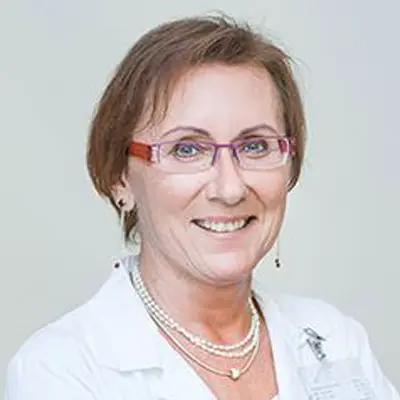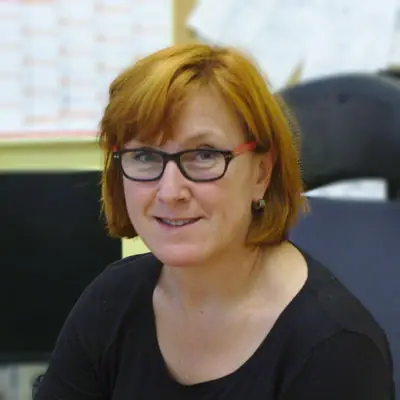In anticipation of World Multiple Sclerosis Day (MS), the ReMuS patient registry held its traditional press conference on May 25, 2023. During the conference, the most up-to-date data on MS and the practical achievements made over the 10 years of the ReMuS registry's existence were presented.
Speakers at the press conference included

prof. Eva Kubala Havrdová, MD, D.Sc.
General University Hospital in Prague

prof. Dana Horáková, MD, Ph.D.
General University Hospital in Prague

Jiří Drahota, M.Sc.
ReMuS Registry

Pavel Hradílek, MD, Ph.D.
University Hospital Ostrava
Multiple Sclerosis Treatment is Experiencing a Revolution in the Czech Republic
Patients now have access to highly effective medications immediately after their first attack, medications that previously would have taken much longer to become available. The effectiveness and safety of these drugs are now being closely monitored by doctors through the ReMuS multiple sclerosis patient registry, which is celebrating its 10th anniversary this year. The latest data is traditionally released in conjunction with World MS Day on May 30.
"New drugs have emerged and have dramatically improved patient outcomes. Because they are effective, they also carry a higher risk of side effects. Multiple sclerosis often manifests at a younger age, so we need to carefully monitor how these drugs behave in patients' bodies 10 to 20 years after administration—whether they cause other problems. For this, we need as much data as possible, such as from the ReMuS registry. Additionally, the new treatments are expensive, and without data clearly demonstrating their effectiveness, it would be difficult for Czech patients to access them," explains neurologist and ReMuS registry expert guarantor, Assoc. Prof. Dana Horáková.
Rapid initiation of highly effective treatment can delay the onset of disability by up to 10 years, says the head of the Center for Demyelinating Diseases at the Neurology Clinic of the 1st Faculty of Medicine, Charles University, and General University Hospital in Prague, Prof. Eva Kubala Havrdová: "It completely changes the prognosis of multiple sclerosis. By the end of this year, we hope to start this treatment in 60–70% of newly diagnosed patients—it was originally only around 20%. For comparison, in Sweden, about 90% of patients use highly effective drugs from the onset of the disease," she adds. Each year, 700 to 800 new cases are diagnosed in the Czech Republic.

To allow experts to collect and evaluate data and monitor potential safety risks, all patients in the registry will need to be asked to sign a new informed consent this year. "To obtain certain data, we need to collect information from at least 50,000 people, and we don't have that many in the Czech registry. Therefore, it is important to connect it with international data, and for that, we need patients' consent. This will allow us to respond quickly and issue warnings if it turns out in the future that certain drugs are not sufficiently safe for some patients," says Assoc. Prof. Horáková.
The Czech ReMuS registry is one of the largest in Europe. "Thanks to the data it contains, we can also respond to unexpected situations, such as the COVID-19 pandemic, when questions arose about how the disease or vaccination affects MS patients. The possibility of linking the registry with health insurance data is revolutionary. Without this, some research would not be possible at all. Future studies may include examining how multiple sclerosis can be detected before the first clinical symptoms appear, allowing doctors to intervene at a much earlier stage," comments the director of the ReMuS registry, Ing. Jiří Drahota, adding that the number of people with multiple sclerosis in the registry reached 20,274 last year, with 15,459 patients on biological treatment and 4,815 not.

Last year, with the help of ReMuS, doctors monitored how breastfeeding affects multiple sclerosis, specifically in 1,681 pregnancies. They observed how the disease behaves in women who stopped treatment and breastfed for three or more months, compared to those who did not breastfeed and started therapy immediately after giving birth. They found that breastfeeding in women with MS did not have a negative impact on the course of the disease, and their condition was comparable to those who did not breastfeed at all. "These results, which of course still need to be confirmed by further studies, are very important to us. Mothers with MS want to breastfeed like any other women, but because the postpartum period carries a higher risk of relapses and disease progression, there are concerns about breastfeeding. Data from the registry strongly suggest that women with MS need not fear breastfeeding if their disease is stabilized. Given that some MS drugs can now be used during pregnancy and breastfeeding, it will be important to monitor the health status of this group in the registry in the coming years. These findings could help women with MS who are planning pregnancy or are already pregnant in making informed decisions," says MUDr. Pavel Hradílek, Ph.D., from the Center for Diagnosis and Treatment of Demyelinating Diseases at the Neurology Clinic of the University Hospital Ostrava and Faculty of Medicine of the University of Ostrava. "It is still essential to plan and consult pregnancy and breastfeeding with a doctor," he adds. According to data from the ReMuS registry, 206 women with MS gave birth in the Czech Republic last year.
The registry also reveals that 71.19% of women and 28.81% of men were treated in all 15 multiple sclerosis treatment centers in 2022. The average age at the onset of the disease was 32.63 years. The majority of patients were from Prague (16.4%). Conversely, the fewest (3,011) were from the Karlovy Vary region. More than half of the patients receiving biological treatment worked full-time (61.47%) and another 17.23% part-time. Of those who were not receiving biological treatment, 52.07% were not working. A total of 9.33% of patients on biological treatment and 36.67% of those without it received a third-degree disability pension.
